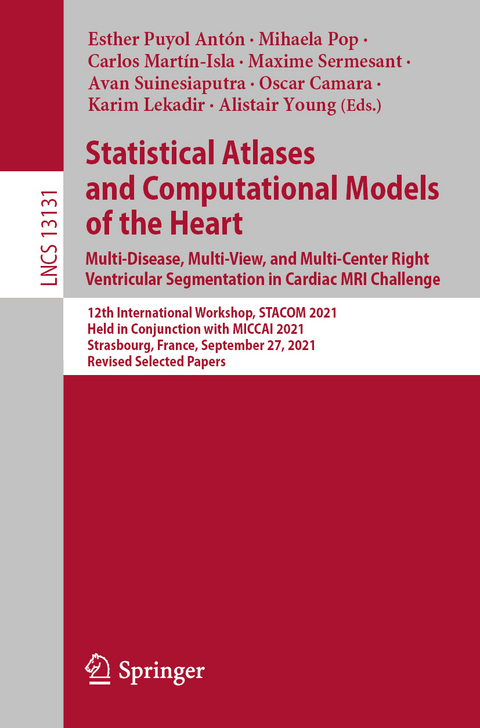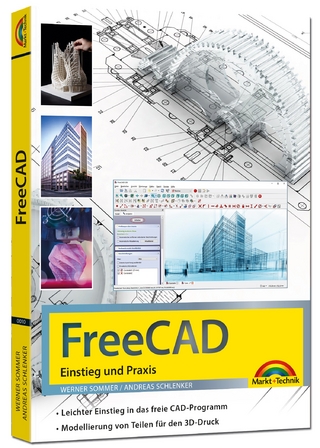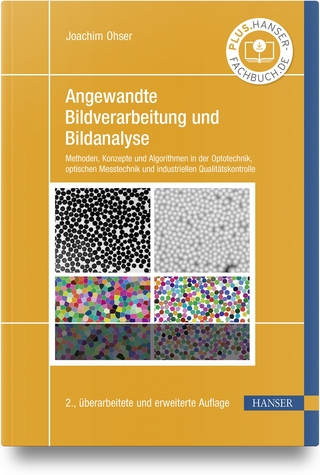
Statistical Atlases and Computational Models of the Heart. Multi-Disease, Multi-View, and Multi-Center Right Ventricular Segmentation in Cardiac MRI Challenge
Springer International Publishing (Verlag)
978-3-030-93721-8 (ISBN)
The 25 regular workshop papers included in this volume were carefully reviewed and selected after being revised. They deal with cardiac imaging and image processing, machine learning applied to cardiac imaging and image analysis, atlas construction, artificial intelligence, statistical modelling of cardiac function across different patient populations, cardiac computational physiology, model customization, atlas based functional analysis, ontological schemata for data and results, integrated functional and structural analyses, as well as the pre-clinical and clinical applicability of these methods.
In addition, 15 papers from the M&MS-2 challenge are included in this volume. The Multi-Disease, Multi-View & Multi-Center Right Ventricular Segmentation in Cardiac MRI Challenge (M&Ms-2) is focusing on the development of generalizable deep learning models for the Right Ventricle that can maintain good segmentation accuracy on different centers, pathologies and cardiac MRI views. There was a total of 48 submissions to the workshop.
Multi-atlas segmentation of the aorta from 4D flow MRI: comparison of several fusion strategie.- Quality-aware Cine Cardiac MRI Reconstruction and Analysis from Undersampled k-space Data.- Coronary Artery Centerline Refinement using GCN Trained with Synthetic Data.- Novel imaging biomarkers to evaluate heart dysfunction post-chemotherapy: a preclinical MRI feasibility study.- A bi-atrial statistical shape model as a basis to classify left atrial enlargement from simulated and clinical 12-lead ECGs.- Vessel Extraction and Analysis of Aortic Dissection.- The Impact of Domain Shift on Left and Right Ventricle Segmentation in Short Axis Cardiac MR Images.- Characterizing myocardial ischemia and reperfusion patterns with hierarchical manifold learning.- Generating Subpopulation-Specific Biventricular Anatomy Models Using Conditional Point Cloud Variational Autoencoders.- Improved AI-based Segmentation of Apical and Basal Slices from Clinical Cine CMR.- Mesh Convolutional Neural Networks forWall Shear Stress Estimation in 3D Artery Models.- Hierarchical multi-modality prediction model to assess obesity-related remodelling.- Neural Angular Plaque Characterization:Automated Quantification of Polar Distributionfor Plaque Composition.- Simultaneous Segmentation and Motion Estimation of Left Ventricular Myocardium in 3D Echocardiography using Multi-task Learning.- Statistical shape analysis of the tricuspid valve in hypoplastic left heart syndrome.- An Unsupervised 3D Recurrent Neural Networkfor Slice Misalignment Correction in CardiacMR Imaging.- Unsupervised Multi-Modality RegistrationNetwork based on Spatially Encoded Gradient Information.- In-silico analysis of device-related thrombosis for different left atrial appendage occluder settings.- Valve flattening with functional biomarkers for the assessment of mitral valve repair.- Multi-modality cardiac segmentation via mixing domains for unsupervised adaptation.- Uncertainty-Aware Training for Cardiac Resynchronisation Therapy Response Prediction.- Cross-domain Artefact Correction of Cardiac MRI.- Detection and Classification of Coronary Artery Plaques in Coronary Computed Tomography Angiography Using 3D CNN.- Predicting 3D Cardiac Deformations With Point Cloud Autoencoders.- In uence of morphometric and mechanical factors in thoracic aorta finite element modeling.- Right Ventricle Segmentation via Registration and Multi-input Modalities in Cardiac Magnetic Resonance Imaging from Multi-Disease, Multi-View and Multi-Center.- Using MRI-specific Data Augmentation to Enhance the Segmentation of Right Ventricle in Multi-disease, Multi-center and Multi-view Cardiac MRI.- Right Ventricular Segmentation from Short- and Long-Axis MRIs via Information Transition.- Tempera: Spatial Transformer Feature Pyramid Network for Cardiac MRI Segmentation.- Multi-view SA-LA Net: A framework for simultaneous segmentation of RV on multi-view cardiac MR Images.- Right ventricular segmentation in multi-view cardiac MRI using a unified U-net model.- Deformable Bayesian Convolutional Networks for Disease-Robust Cardiac MRI Segmentation.- Consistency based Co-Segmentation for Multi-View Cardiac MRI using Vision Transformer.- Refined Deep Layer Aggregation for Multi-Disease, Multi-View & Multi-Center Cardiac MR Segmentation.- A Multi-View Cross-Over Attention U-Net Cascade With Fourier Domain Adaptation For Multi-Domain Cardiac MRI Segmentation.- Multi-Disease, Multi-View & Multi-Center Right Ventricular Segmentation in Cardiac MRI using Efficient Late-Ensemble Deep Learning Approach.- Automated Segmentation of the Right Ventricle from Magnetic Resonance Imaging Using Deep Convolutional Neural Networks.- 3D right ventricle reconstruction from 2D U-Net segmentation of sparse short-axis and 4-chamber cardiac cine MRI views.- Late Fusion U-Net with GAN-based Augmentation for Generalizable Cardiac MRI Segmentation.- Using Out-of-Distribution Detection for Model Refinement in Cardiac Image Segmentation.
| Erscheinungsdatum | 18.01.2022 |
|---|---|
| Reihe/Serie | Image Processing, Computer Vision, Pattern Recognition, and Graphics | Lecture Notes in Computer Science |
| Zusatzinfo | XIII, 385 p. 149 illus., 139 illus. in color. |
| Verlagsort | Cham |
| Sprache | englisch |
| Maße | 155 x 235 mm |
| Gewicht | 611 g |
| Themenwelt | Informatik ► Grafik / Design ► Digitale Bildverarbeitung |
| Informatik ► Theorie / Studium ► Künstliche Intelligenz / Robotik | |
| Schlagworte | Applications • Artificial Intelligence • Atlases • Cardiac Imaging • Computer Modelling • Computer Science • conference proceedings • CT • Deep learning • electro-mechanical heart models • Image Analysis • Image Processing • image reconstruction • Image Segmentation • Informatics • machine learning • MRI • Neural networks • pattern recognition • registration • Research • Segmentation • Signal Processing |
| ISBN-10 | 3-030-93721-6 / 3030937216 |
| ISBN-13 | 978-3-030-93721-8 / 9783030937218 |
| Zustand | Neuware |
| Haben Sie eine Frage zum Produkt? |
aus dem Bereich


